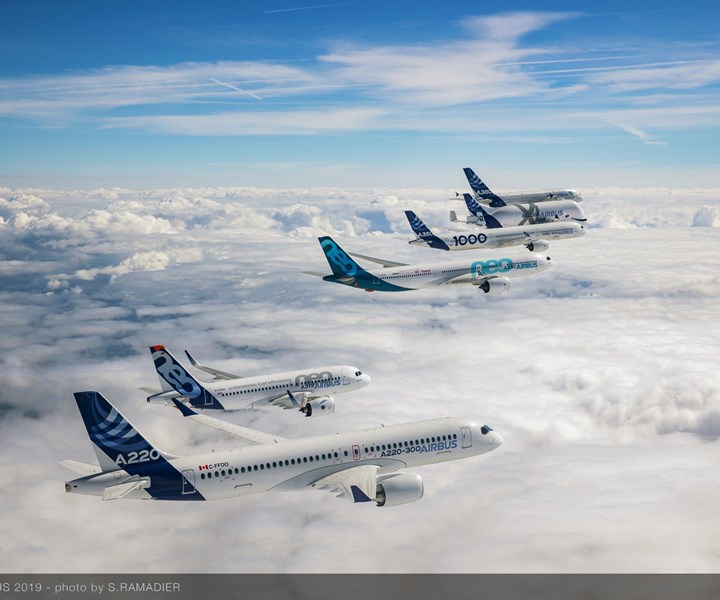Airbus announces headcount reduction through mid-2021
The reduction of 15,000 positions, made necessary by the coronavirus pandemic, will primarily affect Airbus employees in France, Spain, Germany and the U.K., as well as Stelia and Premium AEROTEC.

Source | Airbus
Airbus announced on June 30 that it plans to adapt its global workforce and resize its commercial aircraft activity in response to the coronavirus pandemic. This adaptation is expected to result in a reduction of around 15,000 positions no later than summer 2021. The company says the information and consultation process with social partners has begun with a view to reaching agreements for implementation starting in autumn 2020.
Airbus notes that commercial aircraft business activity has dropped by close to 40% in recent months as the industry faces an unprecedented crisis. Commercial aircraft production rates have been adapted accordingly. Airbus says it is grateful for the government support that has enabled the company to limit workforce reductions. However, with air traffic not expected to recover to pre-COVID levels before 2023 and potentially as late as 2025, Airbus says it now needs to take additional measures to reflect the post-COVID-19 industry outlook.
Following the in-depth analysis of customer demand that has taken place over recent months, Airbus anticipates the need to reduce its global workforce due to COVID-19 by approximately:
- 5,000 positions in France
- 5,100 positions in Germany
- 900 positions in Spain
- 1,700 positions in the U.K.
- 1,300 positions at Airbus’ other worldwide sites
These figures include Airbus subsidiaries Stelia in France and Premium AEROTEC in Germany. However, they do not include approximately 900 positions stemming from a pre-COVID-19-identified need to restructure Premium AEROTEC in Germany, which will now be implemented within the frame of this global adaptation plan.
While compulsory actions cannot be ruled out at this stage, Airbus says it will work with its social partners to limit the impact of this plan by relying on all available workforce reduction measures, including voluntary departures, early retirement and long-term partial unemployment schemes where appropriate.
“Airbus is facing the gravest crisis this industry has ever experienced,” says Airbus CEO Guillaume Faury. “The measures we have taken so far have enabled us to absorb the initial shock of this global pandemic. Now, we must ensure that we can sustain our enterprise and emerge from the crisis as a healthy, global aerospace leader, adjusting to the overwhelming challenges of our customers. To confront that reality, we must now adopt more far-reaching measures. Our management team and our Board of Directors are fully committed to limiting the social impact of this adaptation. We thank our governmental partners as they help us preserve our expertise and know-how as much as possible and have played an important role in limiting the social impact of this crisis in our industry. The Airbus teams and their skills and competences will enable us to pursue our ambition to pioneer a sustainable future for aerospace.”
Related Content
-
Plant tour: Middle River Aerostructure Systems, Baltimore, Md., U.S.
The historic Martin Aircraft factory is advancing digitized automation for more sustainable production of composite aerostructures.
-
Infinite Composites: Type V tanks for space, hydrogen, automotive and more
After a decade of proving its linerless, weight-saving composite tanks with NASA and more than 30 aerospace companies, this CryoSphere pioneer is scaling for growth in commercial space and sustainable transportation on Earth.
-
Combining multifunctional thermoplastic composites, additive manufacturing for next-gen airframe structures
The DOMMINIO project combines AFP with 3D printed gyroid cores, embedded SHM sensors and smart materials for induction-driven disassembly of parts at end of life.
















